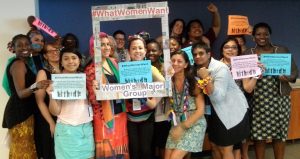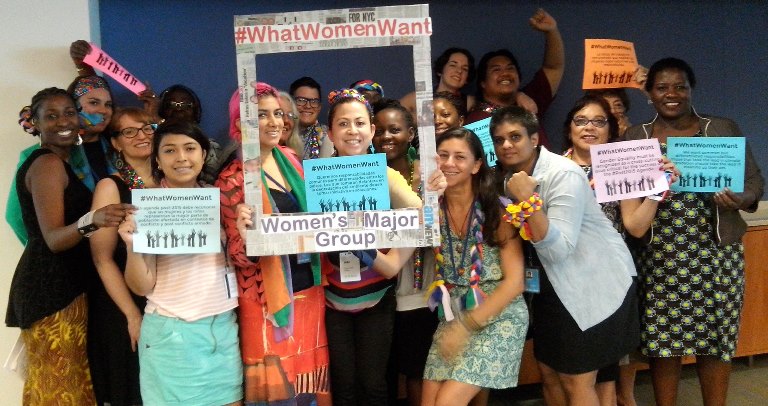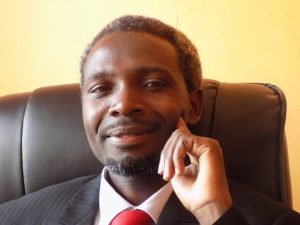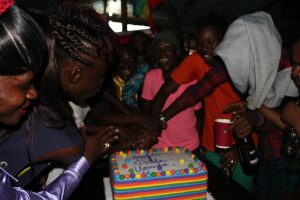 Are you a young feminist advocate? Have you or your organization engaged with the Post 2015 Development Agenda? Share your stories and experiences with us!
Are you a young feminist advocate? Have you or your organization engaged with the Post 2015 Development Agenda? Share your stories and experiences with us!
Background
Following two years of consultations and intense negotiations, governments will formally adopt the post-2015 development agenda at the United Nations General Assembly this September.
“Transforming Our World: The 2030 Agenda for Sustainable Development” is a new framework, outlining a total of 17 Sustainable Development Goals (SDGs) and 169 targets, and addressing governments’ commitments, over the next 15 years, to a plan of action for people, planet and prosperity.
The goals and targets set a wide range of economic, social, and environmental objectives. Among these are commitments to end poverty and hunger; take urgent action to combat climate change; ensure that all human beings can enjoy prosperous and fulfilling lives; foster peaceful, just and inclusive societies free from fear and violence; ensure inclusive and equitable quality education; achieve gender equality and empowering all women and girls; and reduce inequality. In particular to the goal on gender equality, governments have made strong commitments to:
- End all forms of discrimination and violence against all women and girls
- End early and forced marriage and female genital mutilation
- Recognize and value unpaid care and domestic work
- Ensure universal access to sexual and reproductive health
- Protect women and girls’ reproductive rights
- Give women equal rights to economic resources
Civil society advocates and activists, including young feminists, have been deeply engaged with these intergovernmental negotiations at the United Nations, and have rigorously demanded increased political commitment togender, economic, social and ecological justice as a basis for sustainable development.
How can you contribute?
In light of the upcoming UN General Assembly, the Young Feminist Activism (YFA) Program at AWID is looking to feature the stories and experiences of young feminist advocates who have engaged with the development of the Post 2015 Agenda.
Do you think that the Post 2015 Agenda has built enough political commitment from world leaders, UN agencies, the private sector, and other stakeholders, to overcome obstacles to sustainable development, peace, and respect, protection and fulfillment of all human rights? What have been the successes? What do you think is still missing from the agenda? As a young feminist advocate, how would you describe your experience and the process of advocacy at the United Nations? What has been your experience working with other movements? Do you have any recommendations and experiences to move beyond customary silos and work to build alliances? How do you see the work moving forward?
Submission guidelines
Submissions can be in written, photo, or audio, or any other creative form (such as an e-comic strip, visual art, poetry etc.).
Written submissions should:
- Be 500 words in length;
- Be authored by a young feminist activist (under the age of 30);
- Share an experience about engaging with the post 2015 Development Framework;
- Be clearly and accessibly written;
- Include references to concrete examples from the context of the contributor;
- Be in English, French, or Spanish.
If an audio or video is submitted, it should:
- Be 1-5 minutes in length;
- Be authored by a young feminist activist (under the age of 30);
- Tell a story/share an experience about engaging with the post 2015 Development Framework;
- Be clear and comprehensible;
- Include references to concrete examples from the context of the contributor;
- Be in English, Spanish or French.
Send your submissions by email to [email protected] with the title “Call for Submissions: Post 2015” in the subject line by September 9.
The Young Feminist Activism team welcomes all submissions that meet the above guidelines but we may not be able to publish them all. We also reserve the right to edit written submissions for purposes of clarity.




